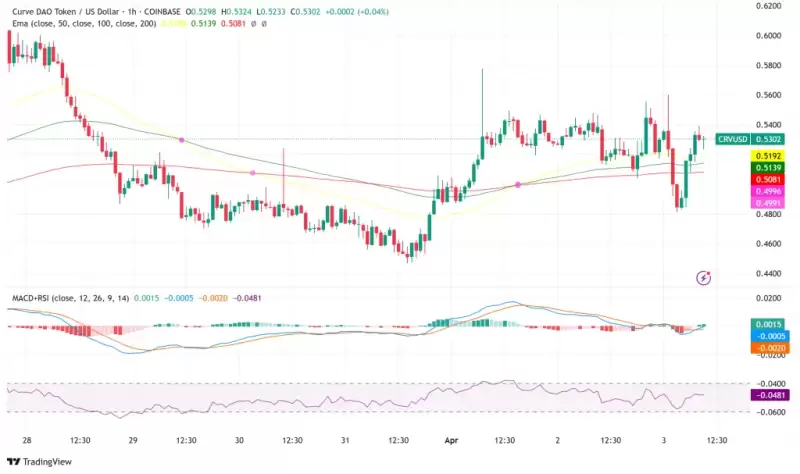 |
|
 |
|
 |
|
 |
|
 |
|
 |
|
 |
|
 |
|
 |
|
 |
|
 |
|
 |
|
 |
|
 |
|
 |
|
Cryptocurrency News Articles
Cryptocurrency ETFs: Revolutionizing Investment Portfolios or Risky Ventures?
Nov 28, 2024 at 01:27 pm
The recent surge in cryptocurrency exchange-traded funds (ETFs) suggests that digital assets are becoming mainstream investment vehicles. This shift presents exciting opportunities and challenges for individual investors, institutions, and regulators.

Cryptocurrency investment company Bitwise has made several significant moves recently, including submitting an application to the U.S. Securities and Exchange Commission (SEC) for an exchange-traded fund (ETF) that would hold its diversified 10 Crypto Index Fund. This fund includes leading cryptocurrencies such as Bitcoin, Ethereum, Solana, and Cardano, among others.
The application marks one of the most comprehensive proposals for a crypto ETF in the United States. If approved, the ETF would trade on Cboe BZX Exchange and be available to a broad range of investors.
In another development, Ripple has announced its support for Bitwise's Physical XRP ETP, which is designed to provide European investors with direct access to XRP.
According to industry insiders, the renewed clarity in U.S. cryptocurrency regulations has created an opportunity for such products to flourish.
Furthermore, Bitwise has submitted the necessary regulatory documents to venture into the growing Solana ETF space, joining competitors VanEck and 21Shares.
In a related move, WisdomTree has taken steps to prepare an XRP-focused ETF by registering “WisdomTree XRP Fund” in Delaware. This action reflects the growing demand for digital asset investment vehicles.
Meanwhile, 21Shares is expanding its offerings with the launch of new ETPs covering tokens like Ondo Finance and Near Protocol.
These initiatives showcase 21Shares' ongoing commitment to providing innovative investment products in the cryptocurrency domain.
The broader landscape of cryptocurrency ETFs is also rapidly evolving, with several key developments emerging beyond the U.S. and European markets.
In Canada, for instance, Purpose Investments has launched a spot Bitcoin ETF, while Evolve Funds has introduced an Ethereum ETF. Both ETFs have seen strong demand and are now among the largest in the country.
Moreover, Brazil has also taken steps to approve an ETF that provides exposure to both Bitcoin and Ethereum.
The introduction of crypto ETFs in the U.S. is expected to create a ripple effect, encouraging more countries to adopt similar measures, thus fostering a more interconnected global financial system.
Cryptocurrency ETFs: A Closer Examination
The recent surge in cryptocurrency exchange-traded funds (ETFs) suggests that digital assets are becoming mainstream investment vehicles. This shift presents exciting opportunities and challenges for individual investors, institutions, and regulators.
Here, we'll explore some emerging developments and delve into the broader implications of crypto ETFs.
While Bitwise, Ripple, and WisdomTree focus on U.S. and European markets, other regions are experiencing significant developments in crypto ETFs.
For example, countries like Canada and Brazil have already approved Bitcoin and Ethereum ETFs, paving the way for global acceptance.
The appeal of crypto ETFs lies in their ability to provide a safer and more regulated means of investing in digital currencies, especially for institutional investors who are typically wary of the volatility and security risks associated with direct crypto purchases.
Additionally, ETFs allow for diversification within one investment vehicle, encompassing multiple cryptocurrencies which might otherwise require separate purchases.
However, crypto ETFs are not without controversy. Critics argue that the introduction of ETFs based on volatile digital assets could increase systemic risk within traditional financial systems.
The potential for market manipulation and lack of historical data to assess long-term risks are further points of concern. Moreover, with the regulatory environment still evolving, investors face uncertainty regarding potential future restrictions or changes.
On the flip side, crypto ETFs can democratize access to digital asset investments. By lowering the barrier to entry, smaller investors can participate in a market once dominated by large, tech-savvy players.
Additionally, ETFs could boost local economies by drawing in foreign investment and enhancing technological infrastructure.
FAQs About Crypto ETFs
1. How do crypto ETFs benefit traditional investors? Crypto ETFs offer exposure to the high-growth potential of cryptocurrencies while providing the familiar structure and security of traditional ETFs.
2. Are crypto ETFs safer than direct crypto investment? While they are generally considered less risky due to more stringent regulatory oversight, they still carry the inherent volatility of the underlying assets.
3. What future developments can we expect? As the regulatory landscape clarifies, we anticipate a broader range of crypto ETFs, potentially including thematic or sector-specific funds (e.g., DeFi-focused ETFs).
Conclusion
The evolving landscape of cryptocurrency ETFs presents both promising opportunities and significant risks. As financial institutions and regulators work to strike a balance between innovation and protection, the role of digital assets within the global economy will continue to expand and adapt.
For more information on digital asset investments and ETFs, you might explore these reliable resources: Investopedia and Crypto.com.
Disclaimer:info@kdj.com
The information provided is not trading advice. kdj.com does not assume any responsibility for any investments made based on the information provided in this article. Cryptocurrencies are highly volatile and it is highly recommended that you invest with caution after thorough research!
If you believe that the content used on this website infringes your copyright, please contact us immediately (info@kdj.com) and we will delete it promptly.
-

-

- Bitcoin (BTC) ETF Inflows Have Surged Again as Investors Ignore Trump's Reciprocal Tariffs
- Apr 03, 2025 at 02:45 pm
- Inflows into spot Bitcoin ETFs have surged once again as investors chose to look past the Trump reciprocal tariffs. The net inflows across all US ETFs for Bitcoin stood at $220 million
-

-

-

-

-

- How the 1995-S Kennedy Half Dollar Could Be Worth Over $6,000
- Apr 03, 2025 at 02:30 pm
- The 1995-S Kennedy Half Dollar might look like just another coin in your collection, but don't be too quick to dismiss it. This particular coin, especially the silver proof version, has gained significant attention in recent years.
-

-

- Bitcoin (BTC) price falls four per cent after Donald Trump imposes tariffs on trading partners worldwide
- Apr 03, 2025 at 02:25 pm
- Bitcoin as well as other major cryptocurrencies fell after US President Donald Trump imposed tariffs on trading partners worldwide, which triggered a slump in risky assets.



























































